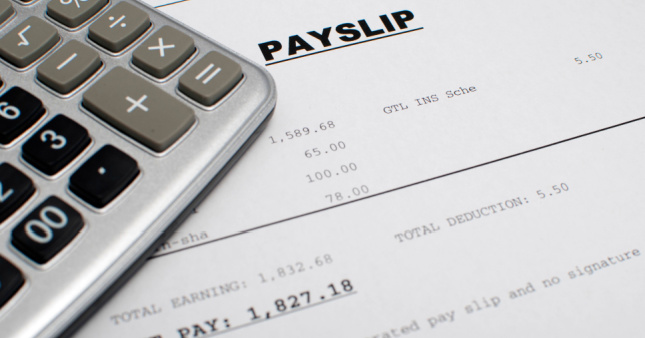
In the world of employment and payroll, understanding the concept of a pro rata salary is crucial for both employers and employees. This term, often seen on payslips and discussed during contract negotiations, can sometimes be a source of confusion. This article aims to demystify the concept of a pro rata salary, explaining its meaning, significance, and how it's calculated, ensuring clarity for all involved.
What does pro rata salary mean?
A pro rata salary is a portion of a full-time salary adjusted for the hours worked, ensuring part-time employees receive fair pay.
Essentially, it's a way of calculating wages for part-time employees who don’t work full-time hours or those who haven't worked the full year. It ensures they receive a salary that accurately reflects the time they've contributed.
Why is pro rata salary important?
Understanding and accurately calculating pro rata pay is essential for maintaining transparency and fairness in the workplace. This approach respects the principle of equal pay for equal work, adjusted for the proportion of time worked.
How to calculate pro rata salary
Pro rated salary is calculated by dividing the full-time salary equivalent (FTE) by the total workdays in a pay period, then multiplying by the actual workdays the employee works in that period.
Imagine an employee named Alex who works part-time in a marketing role at a firm in Sydney. The standard full-time role in Alex's position comes with an annual salary of $60,000, based on a 38-hour workweek. However, Alex works 19 hours a week to balance work with postgraduate studies.
Step-by-Step Calculation:
Full-Time Annual Salary: $60,000 for a role based on a 38-hour week.
Actual Hours Worked by Alex: 19 hours per week.
Pro Rata Salary Calculation:
Pro Rata Salary = 19 ÷ 38 × $60,000 = $30,000
So, Alex's pro rata annual salary is $30,000.
How to calculate monthly pro-rated earnings
To understand monthly earnings, divide the annual pro rata salary by 12:
Monthly Earnings = $30,000 ÷ 12 = $2,500
How to calculate weekly pro rated earnings
For weekly earnings, considering Alex works 19 hours:
Weekly Earnings = $30,000 ÷ 52 = Approximately $577
How to calculate hourly pro-rated earnings
To find out the hourly rate, divide the weekly earnings by the number of hours worked:
Hourly Rate = $577 ÷ 19 = Approximately $30.37
This calculation shows that despite working half the full-time hours, Alex earns an hourly rate that equates to the full-time role, ensuring fair compensation for the time worked.
Pro rata annual leave entitlement
Under Australian law, full-time employees are entitled to four weeks of paid annual leave. For part-time employees like Alex, this pro rata holiday entitlement is calculated as follows:
Annual Leave (weeks) = 19 ÷ 38 × 4 = 2
Therefore, Alex is entitled to two weeks of paid annual leave per year, reflecting the part-time hours.
Pro rata sick leave entitlements
In addition to annual leave, sick leave entitlements are another crucial aspect of employment benefits that are affected by pro rata calculations. According to the Australian National Employment Standards (NES), full-time employees are entitled to 10 days of paid sick leave, also known as personal and carers leave per year. For part-time employees, this entitlement is also calculated on a pro rata basis relative to their hours worked.
For instance, if Alex works half the hours of a full-time employee, Alex would be entitled to five days of paid sick leave per year. This ensures that part-time employees like Alex have access to necessary health-related leave without financial penalty. Reflecting a fair and equitable approach to employee welfare.
Pro rata salary on payslips
On a payslip, a pro rata salary is typically listed in the same way as a full-time salary but calculated to reflect the part-time hours worked. It's important for employees to review their payslips to ensure the pro rata calculation has been accurately applied.
Using a pro rata salary calculator
For those who prefer an automated approach, a pro rata salary calculator can simplify the process. These tools require you to input the full-time salary, the number of hours a full-time employee works, and the actual hours worked by your part-time employee. Then, you can easily calculate a pro rata salary based on the data entered.
Understanding pro rata wage
The term ‘pro rata wage’ often refers to the hourly or weekly equivalent of a pro rata salary, offering a more granular view of proportional pay. This can be particularly useful for temporary contracts or roles with variable hours.
Pro rata salary legal requirements and best practices
Navigating a pro rata salary requires an understanding of your legal obligations and implementing best practices. Here's what you need to know:
Fair Work Act and Awards
The Fair Work Act 2009 sets minimum pay conditions for all Australian employees, including those on pro rata salaries.
Relevant Awards specific to your industry may contain additional entitlements and calculations for a pro rata salary.
Familiarise yourself with the National Minimum Wage and any applicable Award to ensure compliance.
Avoid underpayment and ensure compliance
Underpaying employees, even unintentionally, carries significant penalties. Always double-check your calculations using available resources like the Fair Work Ombudsman's online pay calculator or seek professional advice from experts like Employsure.
Ensure you maintain accurate records of employee hours and pro rata calculations, and stay updated on changes to legislation and Awards.
Best practices for communication and transparency
Clearly outline the pro rata salary and calculations in the employment contract and letter of offer.
Explain how annual leave, sick leave, and other employee entitlements are pro rated for part-time employees.
Be transparent about the expected work schedule and overtime pay policies.
Regularly communicate any changes to pay or entitlements with your employees.
Need support with pro rata salary?
For employees and employers navigating pro rata salary calculations, understanding the specifics can make a significant difference in ensuring fair workplace practices. If you require further clarification or assistance with pro rata calculations and their implications, professional advice can be invaluable. Contact the experts at Employsure today.
Frequently Asked Questions
What is pro rated (pro rata) salary?
pro rata salary is paid to employees who work less than the full pay period, such as less days or hors when compared to full-time employees. This ensures these employees receive a fair portion of the regular salary.
Can pro rata apply to annual leave?
Yes, annual leave entitlement can also be calculated on a pro rata basis, ensuring part-time employees receive leave proportional to their hours worked.
Does pro rata affect superannuation contributions?
Superannuation contributions can be affected by pro rata salary adjustments, with contributions calculated based on the actual salary earned.
How does pro rata apply to employees who start or leave partway through the year?
For employees not working a full year, their salary and any entitlements like annual leave can be calculated on a pro rata basis to reflect the portion of the year they are employed.


